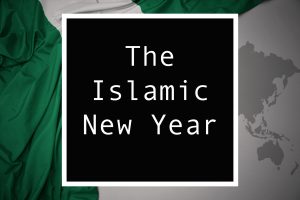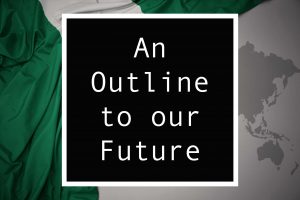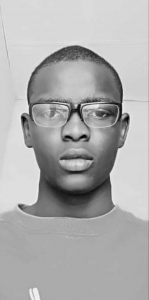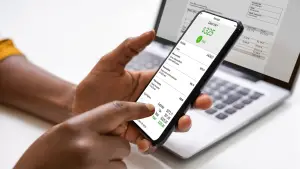Formerly known as “audio blogs”, the origin of podcasts can be traced to the 1980s. Its popularity was however stalled by the inability to distribute these audio recordings. In January 2004, Adam Curry and Dave Winer invented podcasting, with the creation of a program called “iPodder”. Which allowed people to download audio recordings to their iPods. In February of the same year, Ben Hammersley, a journalist mentioned the term “podcasting” in a Guardian Newspaper article[1], joining the words iPod and Broadcast. By 2005, podcasting had infiltrated the mainstream space and was declared the “word of the year” by the New Oxford American Dictionary.
In their true form, podcasts are digital audio recordings, downloadable and oftentimes episodic, with a focus on a specific theme or topic. Today, the scope of podcasts has expanded to include video content. Following the rest of the world, podcasts have gradually become a staple of Nigerian media. It is hard to point out its origin in Nigeria, one can only draw attention to its boom.
Podcasts in Nigeria
There is a large number of Nigerian podcasts available on listening platforms, with topics ranging from entertainment to sociopolitical commentary to media reviews to science and tech, amongst others. The podcasting industry in Nigeria is saturated, just like any other industry. However, the economic advantages of modern podcasting to advertising and brand development have only just spread. It would be disingenuous to discuss the growth of modern podcasting in Nigeria without reference to FK Abudu and Jola Ayeye (Jollz).
Feyikemi Abudu and Jola Ayeye
Popularly referred to as “President” due to her impactful role in the 2020 End SARS protests, entrepreneur, Feyikemi Abudu co-hosts a podcast with Jola Ayeye, screenwriter, creative director of media production company Salt and Truth, and a founding member of the Feminist Coalition. Founded in 2017, the I Said What I Said (ISWIS) Podcast is described as the African millennial experience. It is currently number one on the Top Shows in Nigeria chart on Apple Podcasts. Fans of the ISWIS podcast would attest to how relatable and down-to-earth the hosts are, as well as their captivating personalities, chemistry, and banter.
The success of conversation or informal interview-based podcasts like ISWIS, Terms and Conditions, prompted the podcast wave. Between 2020-2022, podcasts gained and engaged a mainstream audience in Nigeria, opening a new door to content production. Podcasts have become a staple content format[1], with media houses and organizations like Glitch Africa, Madeaux HQ, Zikoko, and others producing in-house podcasts. At this stage, one would expect podcasts to be critically acclaimed by Nigerians, with a more than stellar repute.


Contrarily, podcasts have received a negative reputation among the Nigerian populace. In recent times, the backlash against Nigerian podcasts has grown, with tweets like the above becoming more frequent. There are several factors that make a good podcast; from show structure to sound and audio quality to audience interaction. Above all, what a great podcast needs is an amazing idea, topic, or theme. Think of it as a gimmick if you want, but every good podcast has a story to tell. However, even the best stories still need good storytellers.
A similarity of in-house podcasts produced by media houses is the demographic of the hosts. In most cases, these hosts are influencers or celebrities, an attempt to boost the popularity of the podcasts and in turn increase revenue. Influencers or celebrities host the majority of the top Nigerian podcasts; Toke Makinwa, Taymesan, and Stephanie Coker amongst others. This is not an uncommon tactic, globally the podcast space has become infiltrated with influencers and celebrities seeking to create another platform or a new source of income. It is easier to rely on an existing audience from these hosts than to build a new one.
In essence, there are many more hosts whose roles are focused on “speaking” and having conversations than actual podcasters who participate in the entire production process. Most of the criticism Nigerian podcasts face is directed at the hosts. Oftentimes, they sound ignorant about certain topics, throwing around buzzwords as a way to gather audience engagement, good or bad. Podcasts like “Terms and Conditions” hosted by Melody Hassan, Excel Joab, and Motolani Alake where each of the hosts is a reputable personality in the music industry however stand out. Their opinions on the said industry are therefore well-informed.

With Nigerian podcasts, there are also complaints directed at repetitive topics. There is a lack of depth in dealing with these topics, chosen strictly to create controversy. The real problem is podcasts like these overshadow podcasts with different concepts. Podcast categories are diverse, spanning different themes. There is however too much attention placed on “society and culture” podcasts where the majority of the episodes revolve around sex, relationships, and gender relations.
Perhaps the bone of contention is not the podcasts in their entirety but the soundbites exclusively chosen to inspire public outrage. Bad press is still press. Constant tweets and comments about these podcasts do not lead to their boycotts, it only increases their popularity. These podcasts add nothing new to the discourse, in some cases, they propagate harmful rhetoric.
Therefore, despite public outcry, “controversial” podcasts will continue to thrive, increase in views and eclipse others. The end goal is for listeners to expand their horizons. There are a wide array of well-researched podcasts available for your listening pleasure. Support your favorite indie podcasters by listening and sharing.
[1]https://www.theguardian.com/media/2004/feb/12/broadcasting.digitalmedia






